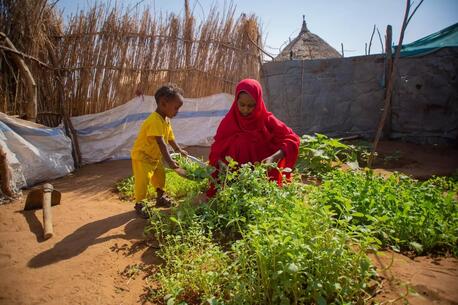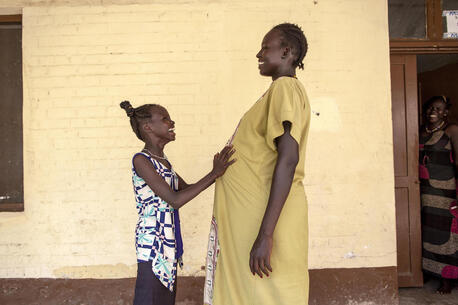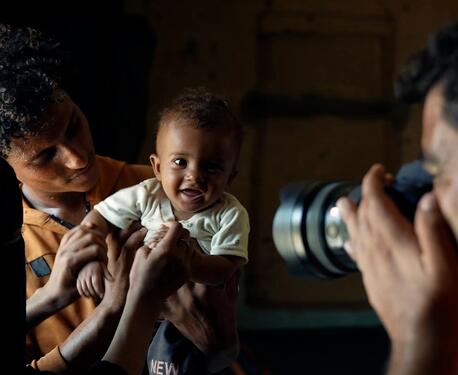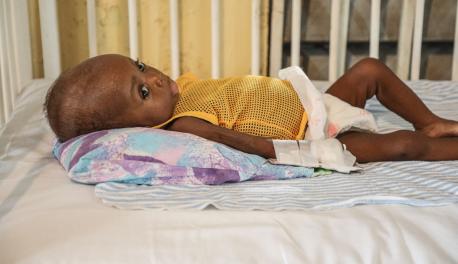
Crisis in Haiti: 1 in 3 Children in Urgent Need of Humanitarian Aid
With vulnerable children and families facing multiple threats to their health and safety, UNICEF calls for support to ramp up emergency relief efforts in the country. That's not easy, says UNICEF Rep Bruno Maes, when "gangs are fighting in the street and bullets are flying."
Nearly one-third of all children in Haiti — at least 1.5 million children — are in urgent need of emergency relief due to shortages of food and water amid political and economic turmoil and escalating gang violence following the assassination of President Jovenel Moïse on July 7.
“This is the worst humanitarian crisis the country has faced over the past few years, and it’s deteriorating week after week,” said Bruno Maes, UNICEF's representative in Haiti.
Concerns that further violence and insecurity could pose serious challenges to UNICEF teams on the ground
In addition to the rising violence, constrained access to safe water, health and nutrition and disruptions in education and child protection services — not solely related to yet exacerbated by the COVID-19 pandemic — remain the greatest threats.
"UNICEF is deeply concerned that further violence and insecurity following the assassination of Haiti’s President could pose serious challenges to the humanitarian work of our teams on the ground and their ability to safely reach the most vulnerable children and families," Maes said in an interview with CNN.
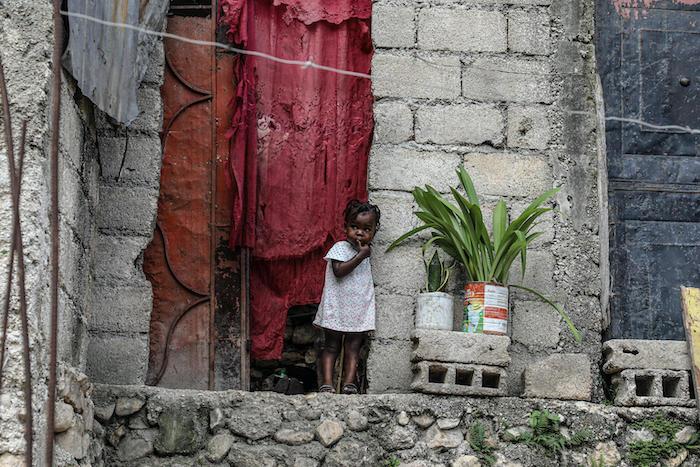
A child in Tabarre Issa, Port-au-Pince, Haiti, photographed on May 25, 2021. © UNICEF/UN0469221/Moreno Gonzalez
While the violence and political unrest is largely centered in and around the capital city of Port-au-Prince, it is affecting life across the Caribbean nation. While continuing to suffer long-term impacts of the coronavirus pandemic, Haiti has also never fully recovered from Hurricane Matthew or a devastating earthquake in 2010.
UNICEF has called for an end to the violence while urging all parties to allow safe passage for humanitarian workers as well as incoming shipments of lifesaving supplies to replenish emergency stockpiles of critical items.
"Many children’s lives depend on humanitarian aid and essential items, such as vaccines, syringes, medicines and therapeutic foods," Maes said. "When gangs are fighting in the street and bullets are flying, it's hard to reach the most vulnerable families. Unless humanitarian organizations are granted safe passage, thousands of affected children will continue to be left with little to no assistance."
A sharp increase in child malnutrition rates
One of the biggest issues for children in Haiti is malnutrition. From January through March, the number of children admitted to health facilities with severe acute cases jumped 26 percent compared to the same period last year, and UNICEF projects that total cases will double from 41,000 in 2020 to 86,000 by year end.
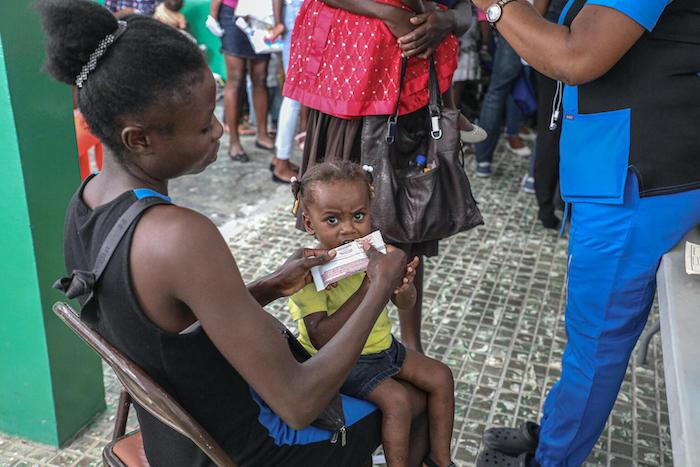
A malnourished child is given therapeutic food at a health facility in Saint-Jean-du-Sud, Haiti, on May 26, 2021. One in four Haitians is currently facing acute food insecurity. © UNICEF/UN0469097/Moreno Gonzalez.
A pillar of UNICEF's ongoing humanitarian response in the country is screening and treating malnourished kids with Ready-to-Use Therapeutic Food (RUTF), but nutrition interventions face significant funding shortfalls.
A comprehensive emergency response plan — largely underfunded
The other pillars of UNICEF's mission in Haiti have to do with improving access to safe water, sanitation and hygiene (WASH) and health care and supporting education, child protection and social protection services. UNICEF also works with local partners to facilitate disaster risk reduction, emergency preparedness and interventions that address violence against children, as well as gender-based violence and prevention of sexual exploitation and abuse.
Help UNICEF deliver lifesaving relief to children in Haiti. Please donate today.
Top photo: One of many children being treated for acute malnutrition at the UNICEF-supported pediatric unit of the Hospital Immaculee Conception in Les Cayes, Haiti. Cases of acute malnutrition in young children are on the rise in Haiti amid a deepening economic and social crisis, rising gang violence, political instability and the lingering effects of the COVID-19 pandemic. © UNICEF/UN0469130/Moreno Gonzalez
